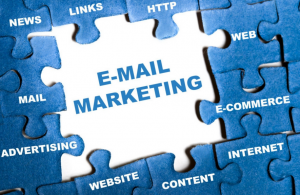When you’re looking to market to prospects and build relationships with existing customers, it’s important to stay in touch with them as often as possible. Get them on your email lists and segment them according to where they are in the buying cycle so that they can be targeted by your messages accordingly. Consistent communication can go a long way for conditioning customers to trust you and think of your business whenever they are in need of your services.
Tell Them What to Expect
Whenever anyone buys from you or signs up for your email list send them a thank you note with an explanation of what to expect from you in the future. How often will they hear from you? What will you contact them about? Make some promises and assurances to them.
Do What You Say You’ll Do
It’s very important that you do whatever you said you were going to do. For example, if you say you will send them a newsletter every Monday, send them a newsletter every single Monday and never on any other day. If you skip or switch the days they may get confused. A lot of people will actually forget they signed up for a list and when you don’t stay active they will report you for spamming them.
Remind Them of What You Said
Periodically, be sure to remind your prospects and customers about your previous promises and assurances. This will help them remember who you are and will build trust.
Let Them Know When You Follow Through
When you do something you said you would do, tell them. “I told you I would send you an update on my xyz product and as promised, here it is.” Again, this reinforces the point that you stick to your word and can be trusted.
Ask Them for Input and Opinions
Once in a while invite your prospects and customers to submit their ideas and input. If you have a new product idea, tell them about it. Ask them what they think. Ask them what they’d pay for such a product or service. Ask them if they would like to see something from you that you do not currently offer.
Tease Them about New Products – Never pass up an opportunity to give them some hints or small bits of information on a new product, service, or event. As you hint about it, make them really want it by explaining what’s in it for them.
Thank Them for Buying
When someone buys something from you (or answers any call to action), be sure to thank them. A ‘thank you’ is always a nice thing to do, plus it gives you a little bit of extra space to provide them with more information about you and your products and/or services.
Follow Up Regularly
Even after someone has purchased and you’ve thanked them, it’s not over. It costs a lot less to create a repeat buyer than it does to turn a lead into a new buyer. On top of that, repeat buyers are more likely to make larger purchases than first time customers. Cultivate your relationship with buyers even more consistently than you do leads and prospects.
Most people need to hear things multiple times before it sinks in so stay consistent with your messages. The more you stick to your word and the more value you can provide to your audience, the more they’ll look forward to whatever you offer them.



